They say big things often come in small packages. In an unassuming, sky-blue garage in Ssembuule Village in western Kampala, five Ugandan Red Cross volunteers are making a big difference in their own lives and in their community. The volunteers are busy cutting, folding and gluing large sheets of brown paper into small paper bags, which are sold to local shops. They are used to hold everything from tomatoes, snacks, to gifts for wedding guests, in their different sizes. The proceeds help to keep the enterprise running and provide young people in this impoverished neighborhood a small income.
This do-it-yourself style project also has an ecological bent because it cuts down on the need for plastic bags, which often litter the roadsides and even exacerbates flooding by clogging up local pipe systems for rainwater. The project is one of several social enterprises around the country being run in partnership between the IFRC, the Ugandan Red Cross and Generation Amazing in which young people make an ecological impact and a small income. It started with a project that used football to mobilizing young people among local refugees and host communities, but it has grown now to other eco-friendly projects such as making soap, paving stones, and bricks using recycled materials.
“They are not just making money by making paper bags,” says Stephen Arinitwe, the team leader of the Community Innovators Group, part of the Youth as Agents of Behavioral Change (YABC) Project under the Kampala West Branch of the Uganda Red Cross Society. “They are also learning about the environment and getting training and job experience that helps them go on to get other jobs as well.”
 Red Cross Red Crescent magazine
Red Cross Red Crescent magazine 
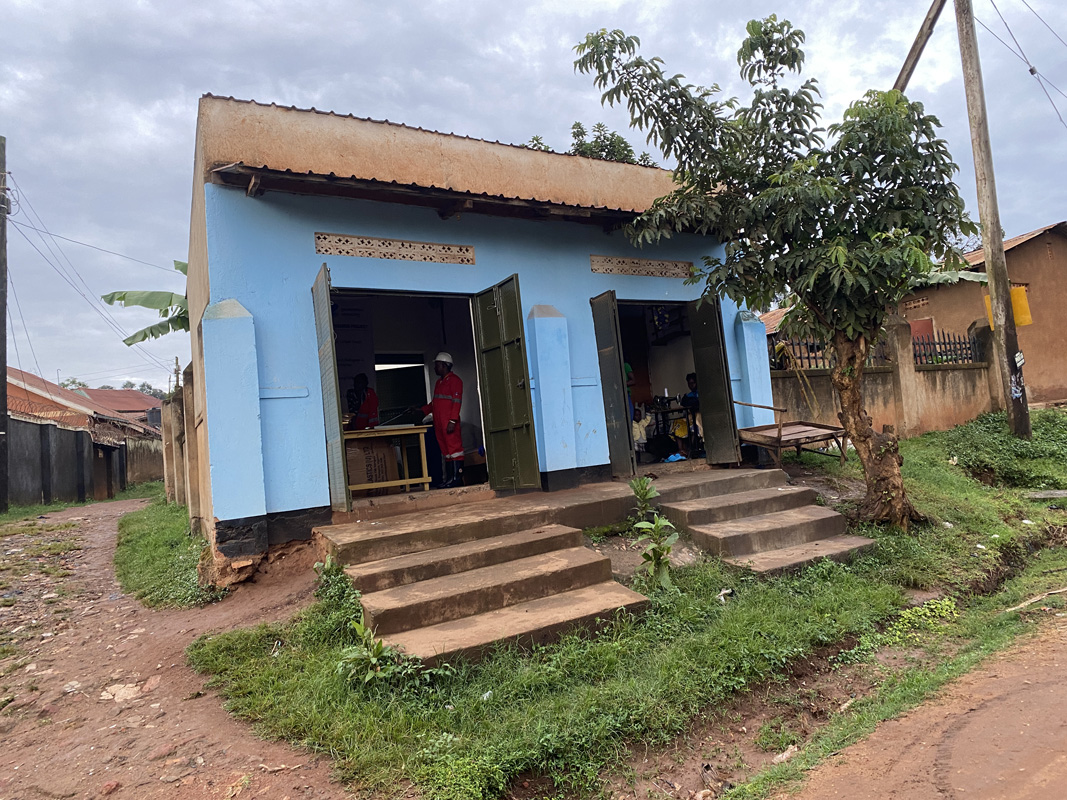
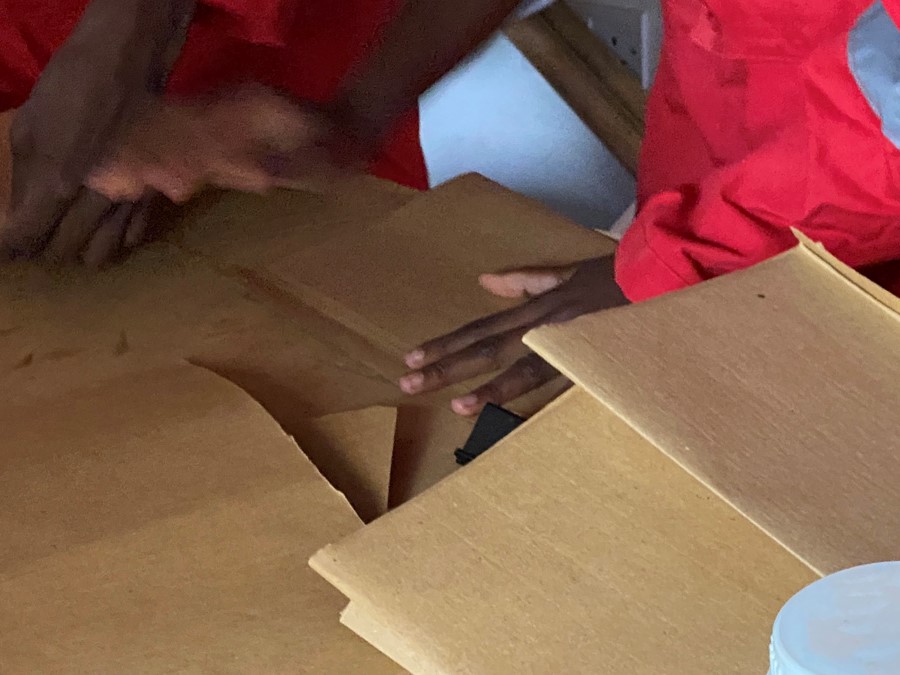
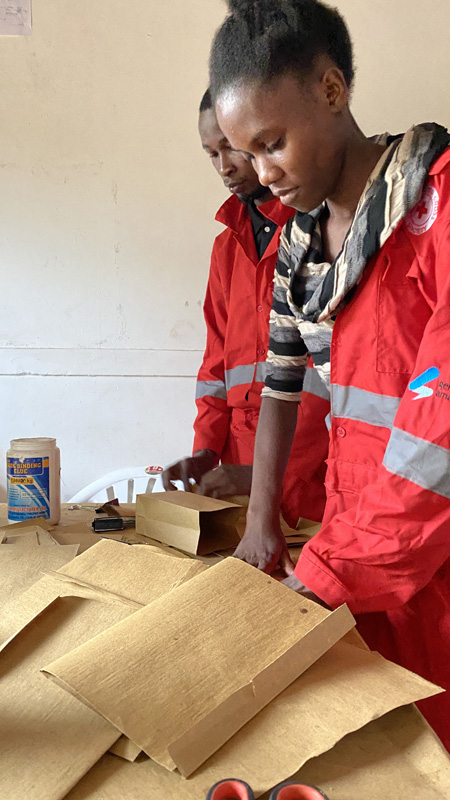

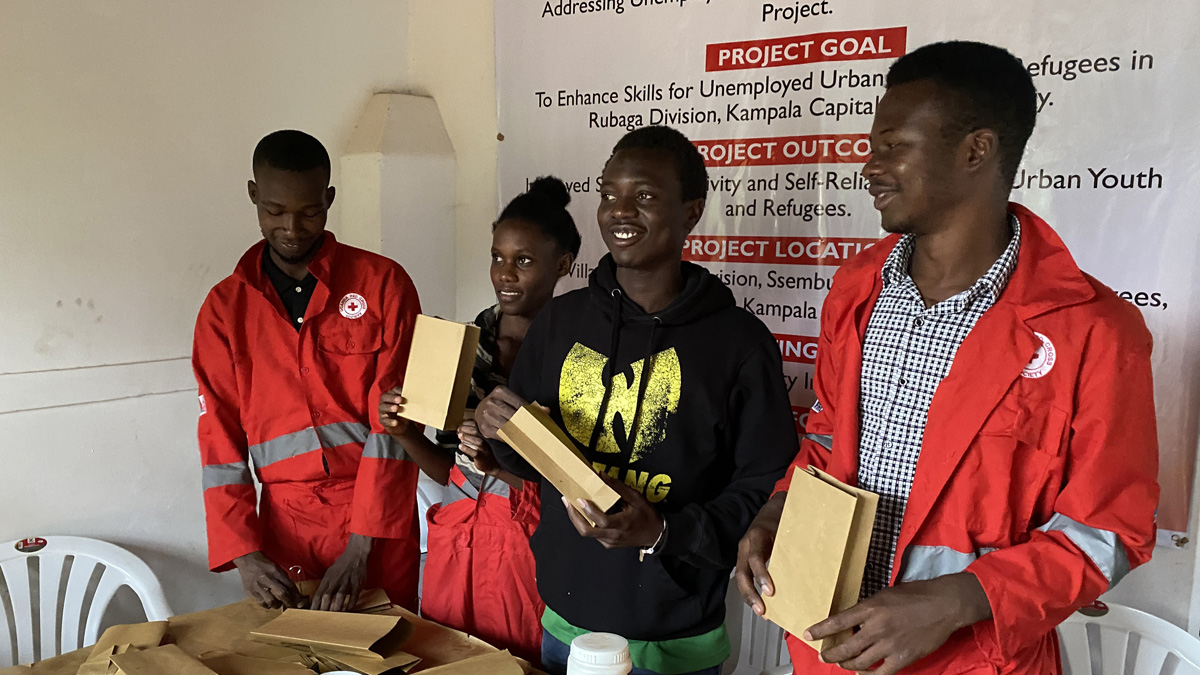
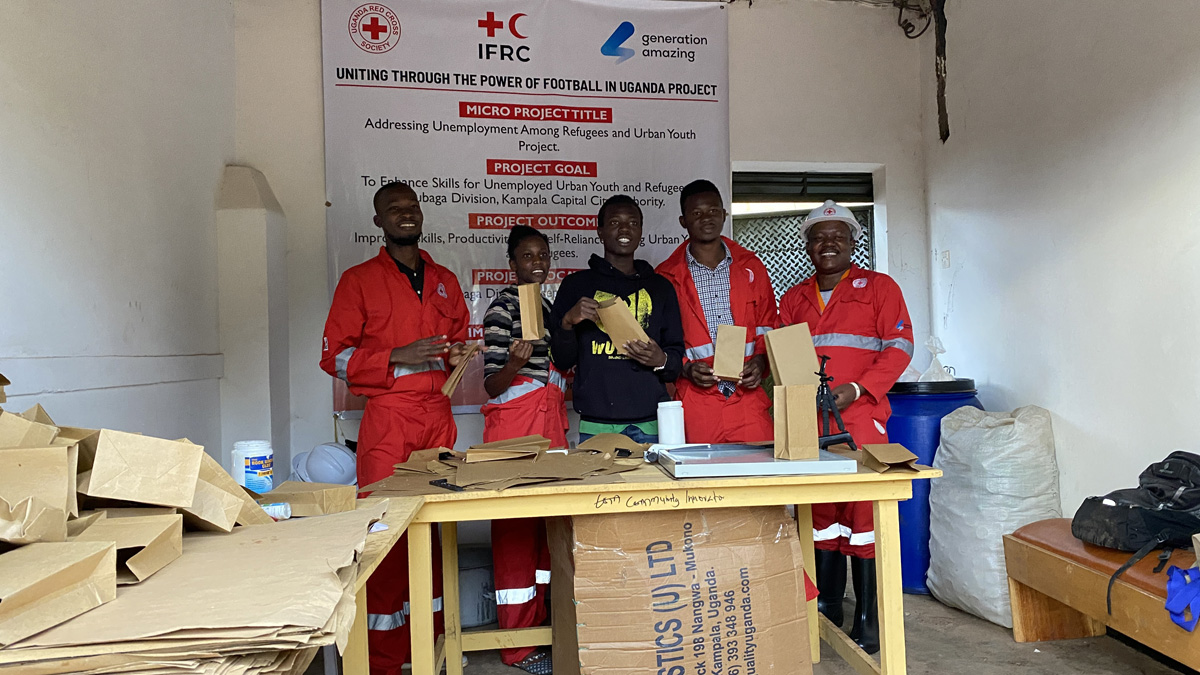
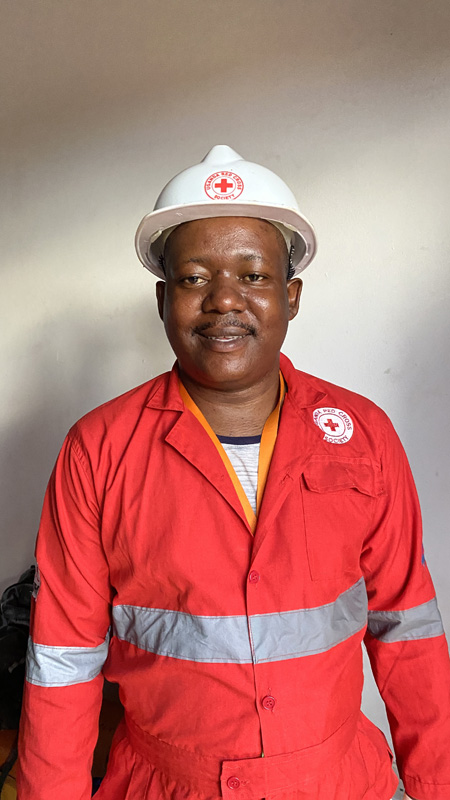
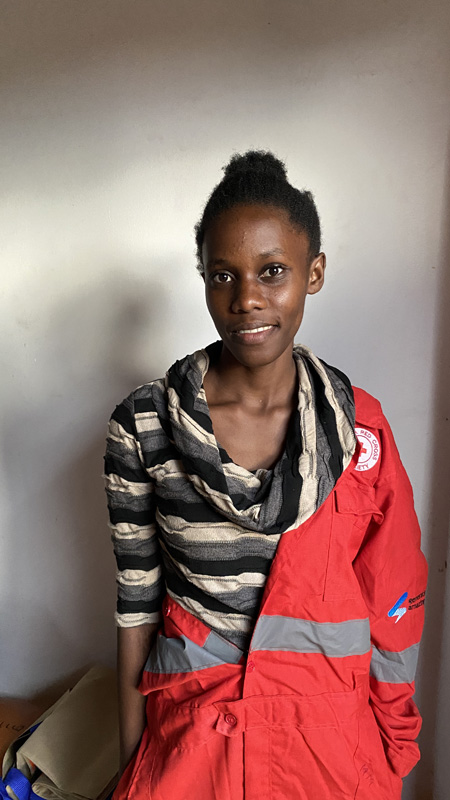
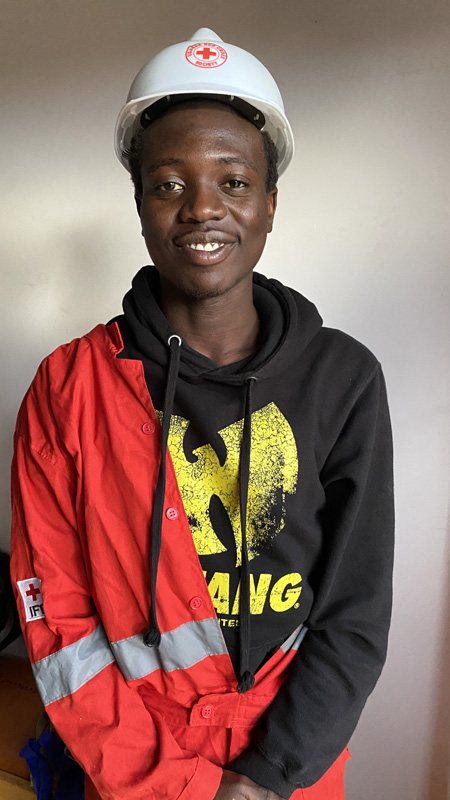
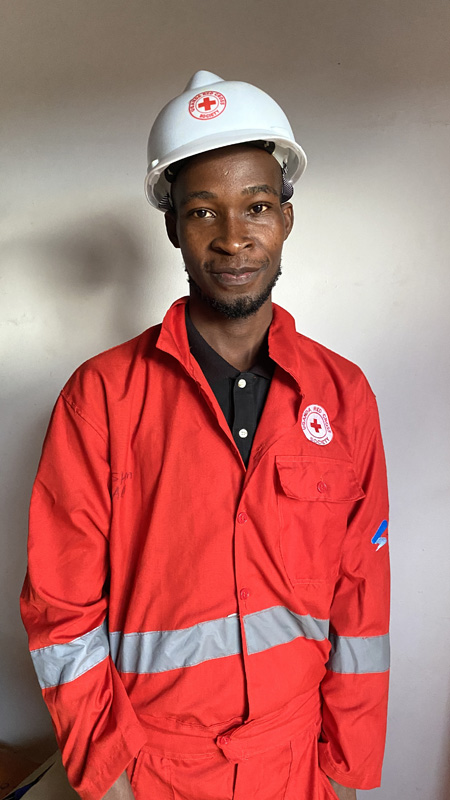
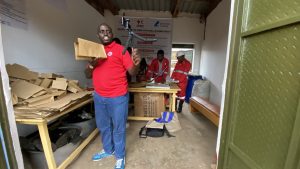






 Tech & Innovation
Tech & Innovation Climate Change
Climate Change Health
Health Migration
Migration